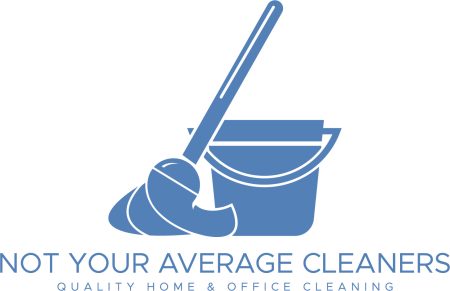In a world that often feels chaotic and overwhelming, finding joy in the simple act of cleaning can be a powerful form of therapy. Cleaning therapy is not just about maintaining a tidy home; it’s about creating a space that nurtures your well-being and brings a sense of peace and accomplishment. This blog post will explore the emotional and psychological benefits of cleaning, offering practical tips and expert advice to help you transform your cleaning routine into a joyful and therapeutic experience. With insights from cleaning professionals, you’ll discover how to find happiness and fulfillment in tidying up.

1. The Psychological Benefits of Cleaning
Cleaning can have a profound impact on your mental health. The act of tidying up can reduce stress, improve mood, and create a sense of order and control in your life.
Expert Advice:
- Stress Reduction: Cleaning can be a meditative activity that helps reduce stress and anxiety. The repetitive motions and focus required can calm the mind and provide a break from daily worries.
- Mood Improvement: A clean and organized space can boost your mood and increase feelings of happiness. Clutter can be overwhelming and contribute to feelings of depression and anxiety.
- Sense of Accomplishment: Completing cleaning tasks provides a sense of accomplishment and boosts self-esteem. The visible results of your efforts can be incredibly satisfying.
2. Creating a Cleaning Routine
Establishing a regular cleaning routine can help you maintain a tidy home and make cleaning a more enjoyable and manageable task.
Expert Advice:
- Set Realistic Goals: Break down cleaning tasks into smaller, manageable steps. Set realistic goals for each day or week to avoid feeling overwhelmed.
- Create a Schedule: Develop a cleaning schedule that fits your lifestyle. Consistency is key to maintaining a clean home and reducing the need for marathon cleaning sessions.
- Incorporate Breaks: Allow yourself to take breaks and reward yourself for completing tasks. This can make cleaning feel less like a chore and more like a series of small, achievable goals.
3. The Joy of Decluttering
Decluttering is an essential part of cleaning therapy. Letting go of unnecessary items can create a sense of freedom and make your living space more enjoyable.
Expert Advice:
- Start Small: Begin with a small area, such as a drawer or a shelf, to avoid feeling overwhelmed. Gradually work your way through larger spaces.
- Use the Four-Box Method: Sort items into four categories: keep, donate, discard, and relocate. This method helps you make decisions more easily and stay organized.
- Focus on Sentimental Items: Be mindful of sentimental items and consider their true value. Keep items that bring you joy and let go of those that no longer serve a purpose.
4. Cleaning as a Mindfulness Practice
Cleaning can be a form of mindfulness practice, allowing you to be present in the moment and fully engage with the task at hand.
Expert Advice:
- Focus on the Senses: Pay attention to the sensory experiences of cleaning, such as the smell of cleaning products, the feel of surfaces, and the sound of scrubbing. This can help you stay present and mindful.
- Breathe Deeply: Take deep breaths as you clean to promote relaxation and reduce stress. Deep breathing can help you stay calm and focused.
- Set Intentions: Set positive intentions for your cleaning session. For example, you might focus on creating a peaceful environment or expressing gratitude for your home.
5. The Role of Cleaning Professionals
Sometimes, enlisting the help of cleaning professionals can enhance your cleaning therapy experience. Professional cleaners can provide valuable support and expertise.
Expert Advice:
- Professional Services: Consider hiring cleaning professionals for tasks that require specialized equipment or expertise, such as deep cleaning carpets or sanitizing upholstery. This can free up your time and reduce stress.
- Stay Informed: Follow reputable cleaning blogs, websites, and social media accounts to stay informed about the latest cleaning techniques, products, and tools. This can help you improve your cleaning skills and find new ways to enjoy the process.
- Ask Questions: Don’t hesitate to ask cleaning professionals for advice and tips. They can provide personalized recommendations based on your specific needs and challenges.
6. Making Cleaning Fun
Finding ways to make cleaning fun can transform it from a mundane chore into an enjoyable activity.
Expert Advice:
- Play Music: Create a cleaning playlist with your favorite upbeat songs. Music can make cleaning more enjoyable and help you stay motivated.
- Involve the Family: Turn cleaning into a family activity by involving everyone in the household. Assign tasks and work together to create a clean and organized space.
- Set Challenges: Challenge yourself to complete tasks within a certain time frame or set goals for each cleaning session. This can make cleaning feel like a game and add an element of excitement.
7. The Therapeutic Power of a Clean Home
A clean and organized home can have a profound impact on your overall well-being. It can create a sense of calm, improve productivity, and enhance your quality of life.
Expert Advice:
- Create a Sanctuary: Designate a space in your home as a sanctuary where you can relax and unwind. Keep this area clean and clutter-free to promote a sense of peace and tranquility.
- Improve Productivity: A clean and organized workspace can boost productivity and help you stay focused. Keep your desk tidy and free of distractions to create an optimal work environment.
- Enhance Quality of Life: A clean home can improve your quality of life by reducing allergens, preventing illness, and creating a more pleasant living environment. Regular cleaning can contribute to better physical and mental health.
8. The Value of Expert Advice
Consulting with cleaning professionals can provide valuable insights and personalized recommendations for maintaining a clean and organized home.
Expert Advice:
- Professional Services: Consider hiring cleaning professionals for tasks that require specialized equipment or expertise, such as deep cleaning carpets or sanitizing upholstery.
- Stay Informed: Follow reputable cleaning blogs, websites, and social media accounts to stay informed about the latest cleaning techniques, products, and tools.
- Ask Questions: Don’t hesitate to ask cleaning professionals for advice and tips. They can provide personalized recommendations based on your specific needs and challenges.
Conclusion
Cleaning therapy is about more than just maintaining a tidy home; it’s about finding joy and fulfillment in the act of cleaning. By understanding the psychological benefits of cleaning, creating a routine, and incorporating mindfulness practices, you can transform cleaning into a therapeutic and enjoyable experience. Whether you choose to declutter, involve the family, or seek expert advice from cleaning professionals, these strategies will help you find happiness and peace in tidying up. Remember, the key to cleaning therapy is to approach it with a positive mindset and a willingness to embrace the process.
About The Author
If you’re seeking outstanding house cleaning services in Oakland, Emeryville, Berkeley, and Alameda, CA, your search ends here! Not Your Average Cleaners proudly serves these communities and is dedicated to providing exceptional cleaning services that leave your home spotless and inviting. From dusting to vacuuming, we meticulously attend to every detail. Our eco-friendly products ensure a fresh and safe environment for you and your family. Discover the difference with our premium home cleaning services!
Quote Form
← Next Blog Post: Back from Vacation: Post-Travel Cleaning Checklist
